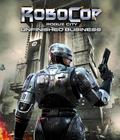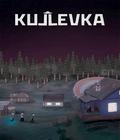There is something to be said for games that defy expectations, where players expect it to do one thing and it does something entirely different, or stories have a familiar premise but go in unexpected directions. It's still a rarity to see in video games, and it's a reminder that something fresh can emerge. Kujlevka fits that mold well, and it helps that the game is fascinating.
The year is 1992, and Russia is experiencing some radical changes ranging from the fall of Communism to the economic crisis and privatization of all things. You play the role of Valery Potikhonchenkov, a World War II veteran who was paralyzed during the war and currently resides in the farming town of Kujlevka. One night, a UFO crashes into your house, but there is no pending alien invasion afoot. There's also no immediate aggression from the town residents or government, as it seems like the UFO's inhabitants are content to observe people and grant some of the things they desire. As the only person the aliens seem to want to communicate with, you must try to tell them what the townspeople want.
While that is the premise, the actual beginning of Kujlevka is very different. You wake up in a train car where your roommate, a living skeleton, hops out of bed to have a smoke before leaving. A nurse, also a living skeleton, comes in to check on you and asks you to walk around, despite you supposedly being unable to do so since a sniper's bullet shot through your spine. As you walk around the train, you discover that everyone on board is a living skeleton, and the train is traveling without tracks through space. It doesn't take long to learn that this is a train full of soldiers who served in the war, and you'll soon be asked to use the anti-aircraft guns to protect the train from a plane attack before you snap out of the dream and back to reality.
These two different story setups are handled by different gameplay. During the day, you're sitting at your desk and talking to everyone who comes by to visit the UFO. You'll be advised at times by your three friends — Klim, Stepan and Vasily — with each one representing different ideals and viewpoints, such as being pro- or anti-communist or being in the middle. Don't expect this to be a game focused on political ideologies, though. All three will advise on what to do, but you'll be the one to make the final decision on topics like determining if the village children can visit the ship or if the mayor can turn your site into a tourist attraction.
While you can interact with a few things, like the bottle of vodka or a fan on your desk, and you can make dialogue choices when asked, the most important interactions come from your TV, as that's the method of communication with the aliens. This is done by choosing up to three words from a small list presented to you as a crude means of conveying your idea to them. From there, you can manipulate a cursor on a triangle to determine things, like your chance of success with the phrases, the ability to get more words to choose from later, and the chance of activating a critical chance. Once that is done, you send the words, and the person requesting the favor enters the ship and emerges with the results.
The gameplay aspect gives you that feeling of playing god, as you get to determine if you want to follow the requests or alter them to get something unexpected. Yet the game never strays into malicious territory, as you can't get anyone killed, and there's no real violence taking place. It plays out like a "slice of life" story, and conversations are peppered with bits of humor and a little absurdity for good measure.
While the sequences in the village comprise a good deal of where the story will go, other players will be more fascinated by the dream sequences, which ratchet up the game's surreal nature. Beyond the initial train sequence in space, you have situations where you're standing in a food line, only to see your friends appear and suggest what you should do — followed by a meeting with Jesus where you ride down the river Styx. Other times, you'll talk to a horseshoe crab, whose life you saved before getting shot by a sniper bullet, or you might talk to Stalin about the nature of leadership and communism.
Compared to the daytime sequences, these end up being more interactive, as you'll walk to fetch items or activate switches or do things like getting a crab a smoke. While some of the bigger puzzles can seem difficult to solve, the game gives you an "out" of sorts by letting you skip the puzzle so you aren't stuck forever. Tying together all of these strange sequences is a character referred to as That One, who takes on different forms per dream but always encourages you to follow the events as they happen so you wake up.
For the most part, Kujlevka's short runtime makes for a breezy adventure, so the idea of going for another run through the story is plausible. However, some things hold back the experience a bit. Firstly, it isn't all that clear what constitutes a critical event. Whether you make it or not, you don't get the sense that anything significant happens when it does occur. Second, while the game gives you the sense that your choices can create a large number of outcomes, there is an event chart in the game that shows exactly how many outcomes can occur. Getting to those different outcomes can remain a mystery, but the choices remain finite, and only the final choices really determine the outcome of the story.
The presentation is simple but remains effective without being distracting. The environments are simple with good textures and a color scheme that doesn't use a large swath of the palette. The character models look like they come from a storybook with simple designs, which makes the story and dream sequences feel even more lighthearted, especially with the animations. The game has a few selectable vocal tracks, but you'd really want to stick with Russian for authenticity and because the performances in other languages rarely rise above decent. As for the soundtrack, it's good enough but not memorable, since it doesn't play often.
Steam Deck users will find that Kujlevka works well on the device, but it does so with unexpected results. By default, the game goes to 1280x800, so there's no letterboxing, and while Cloud Saving is supported, a sync issue didn't get resolved during our review period, so we had to start the game anew. The game goes with the Ultra preset at boot, and it runs well enough and hovers above 45fps. The battery life is almost two hours on a full charge. Turning the preset to Low yields an additional 30 minutes on a full battery, and the art style complements this well enough that the move to Low is completely fine. It's also one you'd prefer, since going to Ultra creates a shadow bug that produces a checkerboard pattern wherever shadows are cast; this doesn't occur on a Windows PC.
Kujlevka is a fascinating game. The alien invasion setup may be well-worn territory, but the setup and outcome make it worthwhile, since it plays out so differently than expected. The "slice of life" story contrasts well with the off-the-wall dream sequences, and the result is a game with a very interesting story and multiple outcomes. It may not be a stunning game to look at, and the outcome variety isn't that vast, but the experience is compelling enough that you'd want to give it a spin at least once — if not multiple times.
Score: 7.5/10
More articles about Kujlevka











 A flying saucer crash-lands in a distant Russian village, turning a rundown kolkhoz into the first, thin bridge between civilizations. As the first point of contact, you must dictate how this encounter unfolds and ultimately determine history's outcome.
A flying saucer crash-lands in a distant Russian village, turning a rundown kolkhoz into the first, thin bridge between civilizations. As the first point of contact, you must dictate how this encounter unfolds and ultimately determine history's outcome.





















